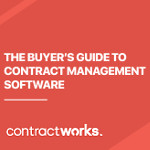By Greg Hoover
What value does an in-house legal department bring to the company? We are the lawyers that know our clients best. We understand the business at a fundamental level and understand how the legal environment affects operations. Often, we also serve as the buyer of outside legal services, ensuring that the company receives value for money. To outside counsel, we are something of a professional client; one that makes our living hiring other lawyers, managing the attorneys so selected, and expressing the wishes of the company. The tools and resources we use to get our jobs done are, for the most part, invisible to our clients so long as we remain the primary gatekeeper.
Just as technology has introduced a number of new tools to make us more efficient, new models like online freelance attorney marketplaces have opened up a world of opportunity, which in some cases can give the tried and true firm model a run for its money.
When to Stick with Status Quo Firm Relationships
Most in-house legal departments do not rely on a single attorney or firm to provide all of their outside services. After all, it is highly unlikely that the best attorneys in each jurisdiction and practice area needed by the company work for the same firm. Instead, we assemble a team of lawyers from our contacts. This generally yields better results for our client in terms of cost, effectiveness, and conflicts management. After all, the best employment discrimination litigator in the city is probably not the best patent attorney.
In some cases, sticking with this status quo model of retaining outside help is the prudent route to take. Those instances include:
1. If you, as the in-house lawyer, are unable to manage the freelance attorney. Some in-house lawyers are skilled managers of attorneys and support staff; some are not. Managing outside counsel, whether a firm or a freelancer, is a skill that some in-house lawyers never pick up. If you would rather not review the pleadings and just trust the relationship partner to get it right, then maybe hiring a freelancer isn’t for you. On the other hand, if you will be reviewing the work before anything is set in stone, and you track deadlines and know how to set expectations, then managing a freelancer will come naturally to you.
2. When defining the scope of a complex engagement presents a challenge, breaking out the Rolodex of known firm attorneys makes sense. In these cases, an issue comes up and the initial goal of the general counsel is simply to mitigate damage. The in-house department may not know enough about the issue to even frame the issue and define a successful outcome for the company. However, most of us are capable of doing a little research and at least getting a general idea of the type of attorney to hire and making a first pass at issue-spotting a fact pattern. If you can do that much, you can probably frame the issue sufficiently to at least get a memo from a freelance attorney outlining next steps. Then you can make the decision to parse out another piece of the case to a freelancer, expand the scope of your original freelancer, or, when necessary, hire a firm for a more full-scope representation.
When and How to Use Online Freelance Attorneys
Before we get into the when and how of using freelance attorneys, let’s pause and consider whether this new contract attorney model is really different than the tried-and-true firm model. Aren’t freelance attorneys signed to projects for specific matters really just outside counsel in all but the name? What separates the senior associate at Dewey, Cheetam, and Howe, LLP from the contract attorney available for hire on a freelance network? Or, perhaps the more pertinent question is: what separates the contract attorney Dewey, Cheetam, and Howe would have hired from the one available on one of these online marketplaces? The pool of attorneys interested in working as contract attorneys used to vary significantly by location and practice area. There are large pools of SEC attorneys in New York City; not so many in Minneapolis. With the advent of the internet and some relatively recent ethics opinions, most attorneys can now work as contract attorneys in most locations. The pool of contract attorneys available to the big firm in another city is now available to the in-house lawyer via the internet.
For smaller in-house legal teams, hiring and managing contract attorneys through online freelance marketplaces provides speed, control and affordability that cannot be achieved hiring outside counsel at a law firm. For example, many law firm malpractice policies require that a partner be assigned to a case, even if all of the work will be done by an associate who is perfectly competent to do the work. This not only adds time for the partner to review the work, but also the overhead to pay for the partner’s time. Suddenly, a 2-hour task becomes a 4-billable-hour exercise, when the in-house counsel would have probably been satisfied with the first draft! To compound matters, without a preexisting relationship, in-house counsel usually do not get to select the associate or associates assigned to their matter. This means that they will get whomever is available, even if another associate could have done the task for less money. If the firm is especially busy or the work is in a niche area of the law, the law firm is likely to hire contract attorneys anyway, and add their markup. All of this adds up to a bigger bill and less control for the client.
However, unlike the execution of a project with a contract attorney, which depends less on the direct involvement of the hiring in-house counsel, the freelance attorney model requires involvement and supervision from in-house counsel. Online platforms help by automating communication flows, and more sophisticated ones like LAWCLERK have the ability to create “Teams” of subject matter experts like a virtual Rolodex. Another benefit is the flexibility to scale up and down as projects ebb and flow.
Getting started is easy. Although each online freelance marketplace will vary slightly, I’m most familiar with LAWCLERK so this process is based on my own experience.
1. Scope the Project: To begin, define the project and deliverable that you want from a contract attorney. Remember, the contract attorney doesn’t know more about the case than you tell them. For example, let’s say you represent a Nevada corporation that does business nationwide. You learn that a company in Georgia is soliciting your customers with the assistance of one of your former employees. The employee signed a nondisclosure agreement when he began working for you, but it is not clear if it is enforceable across the country or even applicable in this situation. You want a memo on the causes of action that may be available to you in Nevada or Georgia.
2. Set a Price and Post It: Now that you know what you want to receive, it is time to decide a price. Understand that freelance attorneys are running their own firms and have overhead expenses and downtime like every firm. They aren’t paralegals receiving a salary whether they’re working or not or receiving benefits from a benevolent third party. The freelancer might not have hard office expenses or staff, but there are things like office equipment, insurance, and bar memberships to pay for. Those are real costs and must be compensated for. An under-priced research memo might be the most expensive advice you ever get. Price the work in line with what you know the project will take to complete. Once you develop a relationship with a few contract attorneys, you can poll them in advance regarding pricing.
When posting a project, the posting attorney sets a fixed price for the delivery of the project and a due date. Contract attorneys hired through the platform agree to perform the work described for a fixed fee only, so there are no surprise bills for the hiring attorney. Then, the money is deposited with the online platform provider and the project is posted. Attorneys with expertise in the relevant area of the law receive an alert informing them that a project matching their interests is available. They are then directed to the platform to submit their name and a short message expressing their interest. After the application period expires, the posting attorney selects the contract attorney they think will best accomplish the task and ask them to clear conflicts. After reviewing the relevant rules of professional conduct and the parties, the contract attorney accepts the case and receives access to the case documents uploaded to the platform.
3. Completion of the Project and Payment: Once the project is accepted, the attorneys can message each other through a portal within the platform. When the project is completed, the contract attorney will send the deliverable to the hiring attorney through the portal. The hiring attorney will then have 96 hours to approve or reject the deliverable and can be unilaterally extended for another 96 hours if needed. If the hiring attorney does nothing, the project is automatically approved at the expiration of the review period. A day or two after the deliverable is approved, the contract attorney is paid. No invoices to review, no check requests to write, no W-9 to chase. Under current law, the corporation does not need to issue a 1099-MISC to the contract attorney, as they are paid through a third-party payment platform. If the contract attorney exceeds the threshold to require tax documents (presently $20,000 per year), then the payment platform is responsible for that filing.
4. Managing Disputes: By now, you’re probably wondering what happens when you aren’t satisfied with the contract attorney’s work. With LAWCLERK, the platform will hold the funds pending resolution and serve as the arbitrator of the issue. This provides a degree of expediency and detached judgment often not available in disputes with outside firms.
5. Rinse and Repeat: Once you have received the deliverable and the contract attorney is paid, you can create another post for the next steps, be it a demand letter, pleading, or more research. You can direct a project to particular contract attorney before posting it to the community writ large. Another convenient feature of the platform is the ability to form teams with which you can build a rapport and direct work when you need someone who understands your preferences in a way that is only learned through repeat work.
I am not here to advocate replacing your entire outside counsel network with freelance attorneys. I am suggesting that it is a good substitute for matters which are well-defined and which might be handled more cost effectively outside the traditional law firm model. After all, the job of a general counsel is to ensure the legal needs of the corporation are met, and it is incumbent upon each of us to be good stewards of the shareholders’ money.
About the Author: Greg Hoover is the in-house counsel to a small division of a Fortune 100 company. His work focuses on general business law, government contracts, international sales of goods, and export controls.
 ContractWorks has published a guide to evaluate current contract management processes and learn best practices for vetting the right software for a company’s needs.
ContractWorks has published a guide to evaluate current contract management processes and learn best practices for vetting the right software for a company’s needs.

